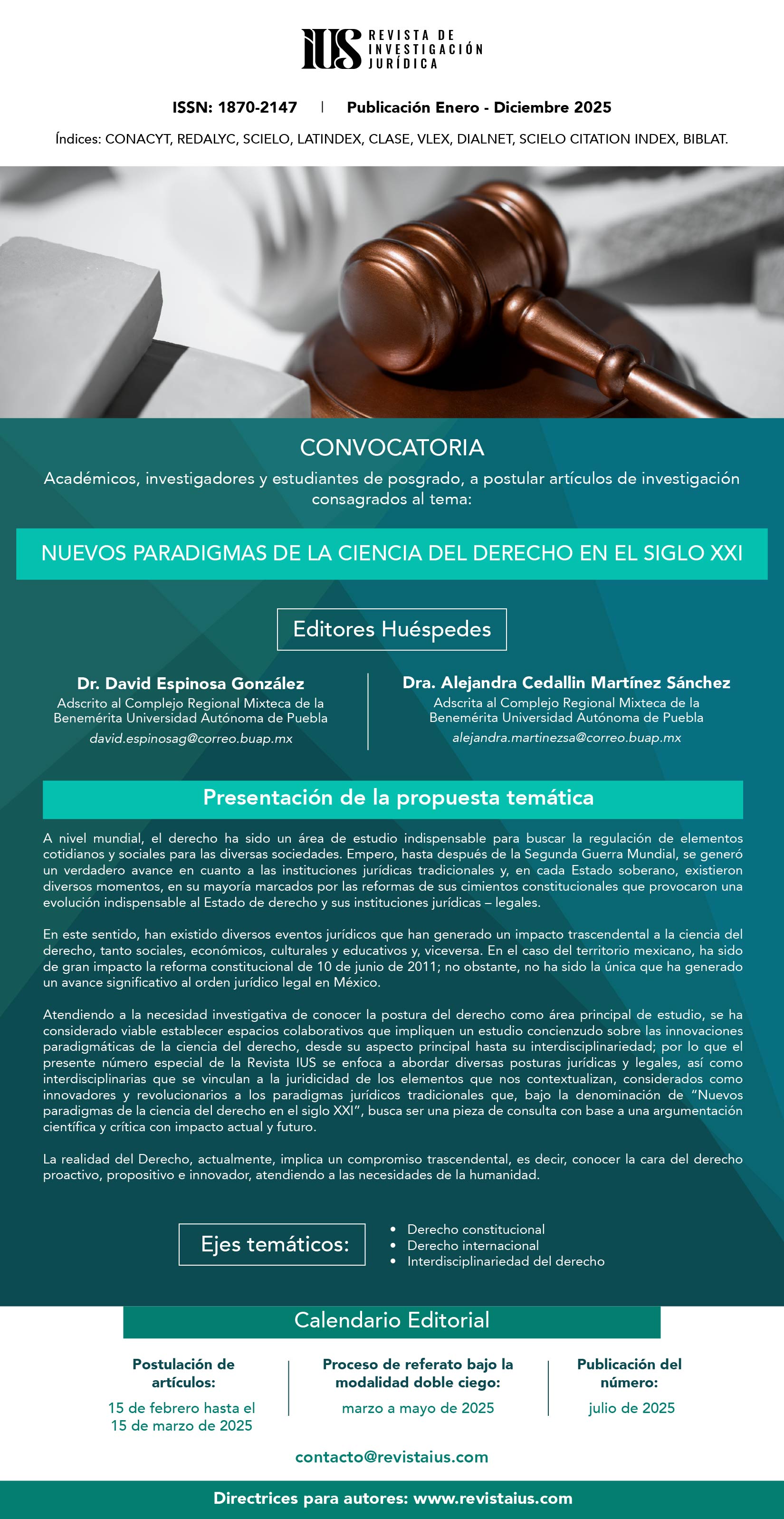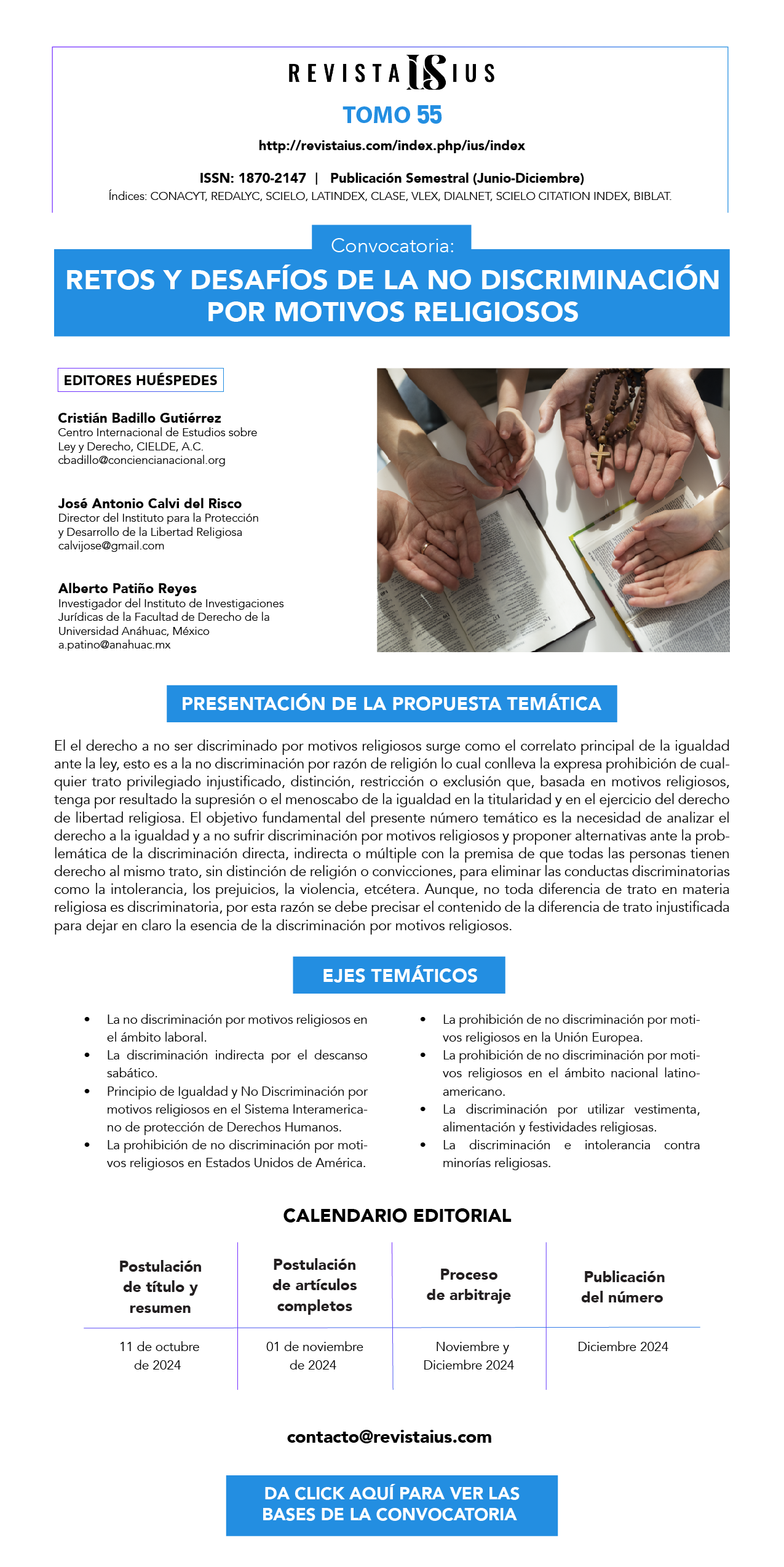The problem of peace in Kant
DOI:
https://doi.org/10.35487/rius.v11i40.2017.335Keywords:
Kant, peace, international relations, freedom, moral, warAbstract
In the world of the practical reason as Kant conceives it, no discontinuity is possible between theory and practice in each area that constitute it (moral, law and politics). The first one is based theoretically on the second one, and this one in practice on the first one and theoretically on the second one. The politics is, likewise, the practice of law. The concept of duty would be the base of the entire building and the nucleus that articulates the continuity of its parts, as a group of rules.
This is what Kant aims to demonstrate in the writings studied here. Especially in “Perpetual peace”, he tries to move his convictions to the area of international relations. But it is a total failure, because there is no guarantee that the union
of morality and interest or force in any human action fields is enough so that the first one restrains the effect of the second ones.
Downloads
References
Demóstenes, Discursos políticos, Barcelona, Ediciones Iberia, 1969.
Grocio, Hugo, De la libertad de los mares, Madrid, Instituto de Estudios Políticos, 1979.
Hermosa, Antonio, “La concepción kantiana de las relaciones internacionales”, Revista de Estudios Políticos, núm. 64, 1989.
Hesiodo, Obras y fragmentos, Madrid, Gredos, 2000.
Hume, David, Ensayos morales, políticos y literarios, Madrid, Trotta, 2011.
Isócrates, Discursos, Madrid, Gredos, 2002.
Kant, Immanuel, Schriften zur Anthropologie, Geschichtsphilosophie, Politik und Pädagogik, Frankfurt am Main, Suhrkamp, 1978.
Kant, Immanuel, Ensayos sobre la paz, el progreso y el ideal cosmopolita, Madrid, Cátedra, 2009.
Loewenstein, Karl, Teoría de la Constitución, Barcelona, Ariel, 1976.
Marco Aurelio, Meditaciones, Madrid, Gredos, 2001.
Peñas, Francisco Javier, Hermanos y enemigos. Liberalismo y relaciones internacionales, Madrid, Universidad Autónoma de Madrid, 2003.
Píndaro, Obras y fragmentos, Madrid, Gredos, 2002.
Reinhard, Brandt, “Reflexiones acerca de la prudencia en Kant”, Isegoría, 2004.
Ridd er, Helmut, “La guerra y el derecho de guerra en el derecho internacional y en la doctrina internacionalista”, Revista de Estudios Políticos, núm. 92, 1957.
Spinoza, Baruch, Tratado Teológico-Político, Madrid, Alianza, 1986.
Tácito, Anales, Madrid, Gredos, 2001.
Tito Livio, Historia de Roma, Madrid, Gredos, 2001.
Tucídides, Historia de la Guerra del Peloponeso, Madrid, Tecnos, 2000.
Vitoria de, Francisco, Relección primera sobre los indios recientemente descubiertos, Madrid, Tecnos, 1998.
Downloads
Published
Issue
Section
License
Revista IUS, published by the Legal Sciences Institute of Puebla A.C., is distributed under the Creative Commons Attribution-NonCommercial 4.0 International (CC BY-NC 4.0) license.
We authorize collaborators to upload a copy of their published work on their personal websites or any Open Access repository, provided that Revista IUS is specifically cited as the original source, indicating the year and issue of the respective example and adding the link to the webpage on which this publication can be freely consulted in toto and without charge: http://www.revistaius.com
Readers are free to:
Share, copy and redistribute the material via any medium or format.
The licensor cannot revoke these freedoms as long as you follow the license terms.
Under the following terms:
Attribution: You must give appropriate credit, provide a link to the license, and indicate if changes were made.
You may do so in any reasonable manner, but not in any way that suggests the licensor endorses you or your use.
NonCommercial – You may not use the material for commercial purposes.
If you remix, transform or build upon the licensed material, its distribution is not permitted.
Charges for managing articles: Revista IUS will not charge for receiving, processing or publishing articles (Article Processing Charge, or APC) submitted by authors.





